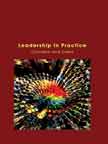Fabio Rosa - Bridging the Electricity Divide in Brazil




|
|
ICMR HOME | Case Studies Collection
To download Fabio Rosa - Bridging the Electricity Divide in Brazil case study
(Case Code: LDEN067) click on the button below, and select the case from the list of
available cases:

»
Leadership and Entrepreneurship Case Studies
» Short Case Studies
» View Detailed Pricing Info
» How To Order This Case
» Business Case Studies
» Case Studies by Area
» Case Studies by Industry
» Case Studies by Company
Please note:
This case study was compiled from published sources, and is intended to be used as a basis for class discussion. It is not intended to illustrate either effective or ineffective handling of a management situation. Nor is it a primary information source.
|
Wins Prize in the 'Inclusive Business Models' category in the prestigious 2010 EFMD Case Writing Competition organized by European Foundation for Management Development (EFMD). |
Case Details:
|
Price: |
| Case Code |
: |
LDEN067 |
For delivery in electronic format: Rs.
300;
For delivery through courier (within India): Rs. 300 + Rs. 25 for Shipping & Handling ChargesThemes
Social Entrepreneurship |
| Case Length |
: |
17 Pages |
| Period |
: |
2000-09 |
| Pub Date |
: |
2010 |
| Teaching Note |
: |
Not Available |
| Organization |
: |
Sistemas de Technologia Adequada Agroeletro,
Instituto Para O Desenvolvimento De Energias Alternativas E Da Auto Sustentabilidade
|
| Industry |
: |
Power |
| Countries |
: |
Brazil |
Abstract:
|
In February 2008, Fabio Rosa (Rosa), a social entrepreneur based in Brazil, was awarded The Leapfrog Fund Award sponsored by The Schwab Foundation for Social Entrepreneurship and the Lemelson Foundation. The award recognized Rosa's efforts at providing rural families living in Brazil with access to electricity. About 25 million people lacked access to electricity in Brazil, most of them residing in rural areas as of late 2006. The adverse impact of lack of electricity resulted in high costs of cultivation, lower farm yields, high expenditure on non-renewable and hazardous energy sources, and poor living conditions. Rosa founded a private organisation, Sistemas de Technologia Adequada Agroeletro (STA) in 1992 and worked towards his mission of rural electrification. He decided to use solar energy to provide electricity to rural families through STA.
|
|
Rosa combined solar energy powered electrical fences with managed grazing technique that improved yields of cattle farmers. He formed a non-profit organization, Instituto Para O Desenvolvimento De Energias Alternativas E Da Auto Sustentabilidade (IDEAAS), in 1997, for extending the benefits of solar energy to low-income families. Rosa started two projects
- the sun shines for all (TSSFA) and Quiron. TSSFA catered to those families which could afford solar energy at market rates and Quiron catered to low-income families that could not afford solar energy at market rates. Rosa developed solar home systems, a product that was leased at affordable rents to several rural families. Through Quiron, he developed self-sustainable business models that were to be adopted by low-income families to improve their income levels so that they could afford solar energy at market rates.
Rosa faced challenge of scaling up his business to cover the whole of Brazil and expand to other developing countries. Brazil government's efforts to extend electricity grid to rural areas also posed a threat to Rosa's business model as his customers might discontinue using his products once they were provided with access to grid. Consistent cash flows for minimum of four years were required for his projects to breakeven.
Issues:
» Understand the challenges faced by social entrepreneurs and how to overcome them.
» Appreciate the importance of extensive market research while developing a business plan.
» Study the importance of business model innovation for developing products and services for the bottom of the pyramid market.
» Understand the importance of communication for expanding the customer base.
» Appreciate the significance of developing sustainable businesses for a social entrepreneur.
» Examine the importance of inclusive growth for the economy.
Contents:
Keywords:
Fabio Rosa, Social Entrepreneur, Schwab Foundation for Social Entrepreneurship, Rural Electrification, Leapfrog Fund Award, Sistemas de Technologia Adequada Agroeletro, Instituto Para O Desenvolvimento De Energias Alternativas E Da Auto Sustentabilidade, Sustainable Business Models, Lean Organization, Banco Nacional de Desenvolvimento Econômico e Social, Non-renewable Energy, The Sun Shines For All, Quiron, Canopus Foundation, Livestock Plan, Grape Vineyard Plan, Sustainable Forestry Plan, Brazilian Network for the Use of Renewable Energy, Clean Energy Ventures, Brazilian Power Sector, Brazilian Economy
Providing Electricity to Rural Masses
- Next Page>>

|
|



